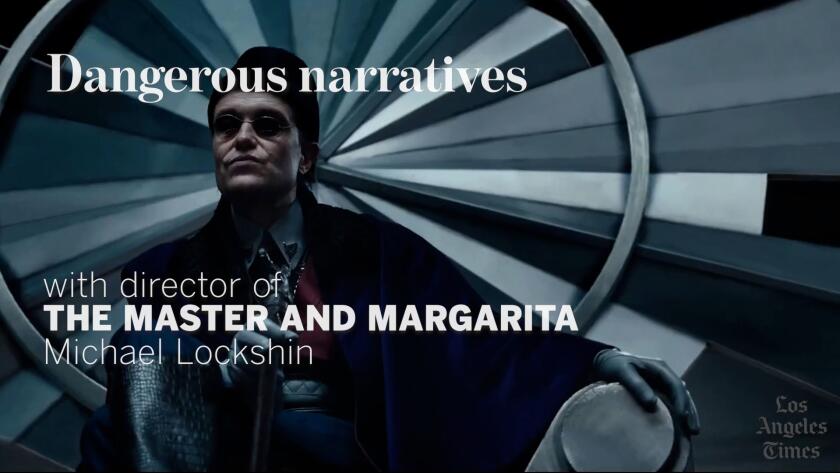
- Share via
Soon after Russian tanks crashed into Ukraine, Michael Lockshin realized he was making a dangerous movie. The director had spent 69 days, and $15 million, filming “The Master and Margarita” in Russia and Croatia, and now he was in Los Angeles beginning postproduction.
- Share via
Dangerous narratives with Film Director Michael Lockshin
With just one previous feature to his name, Lockshin had been entrusted with a cultural treasure — adapting a complicated modernist novel as beloved to Russians as “The Catcher in the Rye” is to Americans.
He’d co-written the script, focusing on the tragic love story between a writer in Stalinist Russia and his devoted paramour. A veiled chronicle of novelist Mikhail Bulgakov’s relation to a totalitarian Kremlin that banned his work, the Russian-language movie would be a satire, a paean to creative freedom, and a surrealist revenge fantasy that culminates in the burning of Moscow.
Lockshin, who was born in America but raised in Russia, thought he was making a fable about a nightmarish past. Then came the war, and the criminalization of even mild dissent. As Lockshin continued editing the footage in an apartment off La Brea, the film that was emerging seemed to have strikingly timely echoes.
In Vladimir Putin’s increasingly fearful Russia, the film’s fate became uncertain. Would it ever be finished, much less allowed to open? With so many voices silenced, might buying a ticket be a quiet act of rebellion?
Lockshin is burning incense in his living room, on a hill with a view of downtown Los Angeles. He lives with his wife, a graphic designer, and their big dog. He does not want his location advertised, though he knows it would not be difficult for enemies to find him.
“Russia just kind of disintegrated,” says Lockshin, 42, a lanky man with a trim chevron mustache and an unhurried but slightly wary air. “We’re in full-fledged Stalinist purges at the moment — something we couldn’t have imagined. It happened very fast.”
He speaks English with a flawless American accent and Russian with a flawless Moscow accent — a function of his singular childhood and the family drama surrounding it, which he does not particularly want to talk about.
He was famous across the USSR as a boy for reasons beyond his control. In October 1986, when he was 5 years old and growing up in Houston, his father, a biochemist and ardent communist, became convinced the FBI was persecuting him. His father packed up the family — Lockshin, his mom, his two siblings — and defected to the Soviet Union with idealistic visions.
Most defections went in the opposite direction, and Soviet officials treated their arrival as a propaganda bonanza. But ordinary Russians beheld the Lockshins’ bright, hopeful faces on the news with disbelief and derision.
The government installed the family in a four-room apartment in Moscow and gave his father a lab to work in. Michael Lockshin became a Soviet schoolboy. When it was cold and gray, which was often, he fantasized about Texas sunshine.
He mastered Russian quickly and read Dostoevsky and Tolstoy in the original. His home was filled with American books and copies of the New Yorker. He watched a VHS tape of “Forrest Gump” again and again. Straddling two cultures, he was conscious of being an outsider.
“I was definitely the only American in my school, probably one of the only Americans in any Russian school,” he says. “I had this kind of crazy world at home, and no one to talk to outside. No one could relate to it.”
The USSR, far removed from his father’s fantasies, was entering its death spiral — Homo sovieticus on the verge of extinction. It was the era of glasnost and perestroika. Long-banned books were circulating legally. McDonald’s opened in Pushkin Square.
One day, Lockshin and his classmates marched across the cobblestones of Red Square to Vladimir Lenin’s tomb to pay tribute to the waxy corpse of the country’s most sacred personage. What Lockshin remembers is the sense of mockery and cynicism, not just from classmates but from teachers.
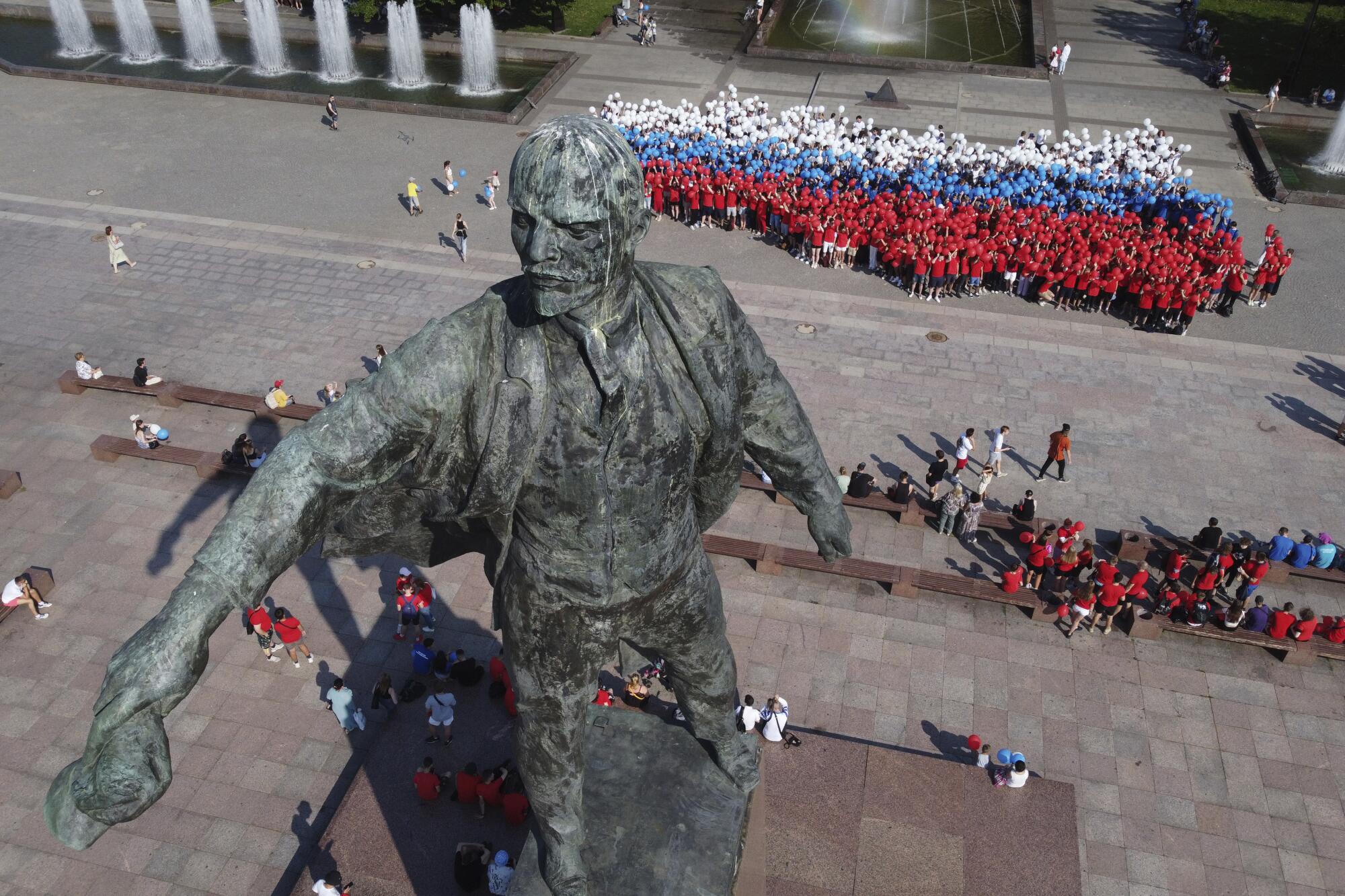
“There was a lot of faking going on — the teachers who had to teach the Lenin stuff,” Lockshin says. “I was always very skeptical of ideology. I was always a little ironic about it.”
In 1991, when Lockshin was 10, the hammer and sickle flag came down and the old Russian tricolor went up.
“Everyone around just was envious of the Western world. As soon as you didn’t have to do any of the communist stuff, no one was sad about it,” he says. “The system was so dysfunctional, and people were so tired of faking it.”
He went on to study psychology at Moscow State University, then traveled the world and began making a name for himself as a director of commercials. One whimsical beer ad featured actor David Duchovny. At that point, Russia was part of the wider world, and Lockshin was free to travel between there and Los Angeles.
He never advertised his childhood. He wanted to distance himself from his family’s peculiar story.
“It was never my calling card. I didn’t want that to be part of my main identity.” There were many times when he wished his family had not left America, but “I wouldn’t be who I am today if that didn’t happen.”
His father, divorced, is now growing old in Moscow, estranged from Lockshin and his other children. Apparently an unreconstructed communist, he was quoted in a Russian-language publication saying of his family: “They went over to the other side of the barricades. I alone remain true to my convictions.”
“The Master and Margarita” went unpublished for a quarter-century after Bulgakov’s death in 1940.
Pervaded by magic and mysticism, Bulgakov’s masterpiece was a far cry from the weary “socialist realism” mandated by an officially atheistic state. The book’s three story lines involve a persecuted writer in 1930s Moscow, a gentlemanly Satan who arrives to visit mischief on the literary scene, and the drama between Pontius Pilate and a Christlike prophet in ancient Jerusalem.
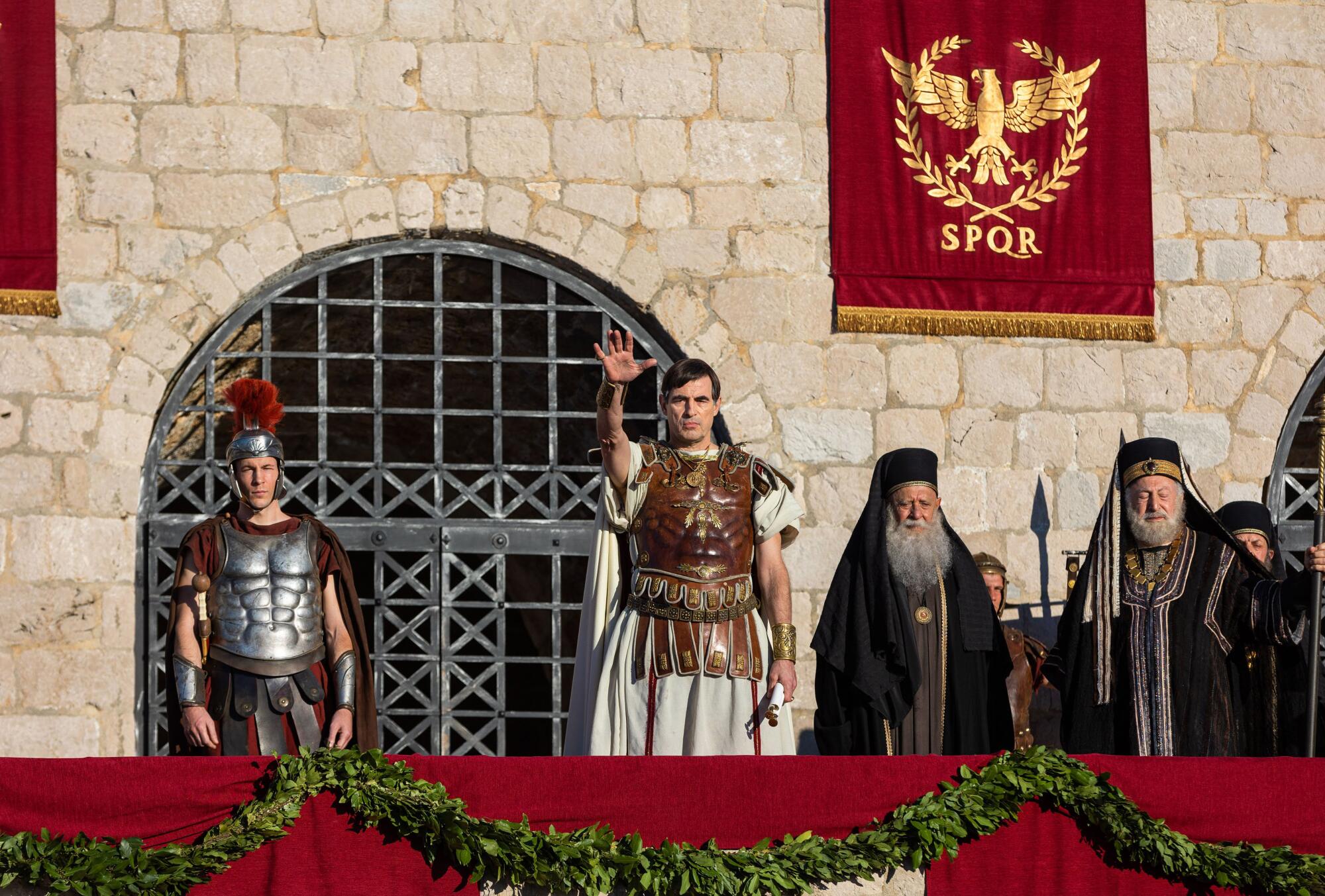
The book’s publication in the 1960s inspired Mick Jagger to write “Sympathy for the Devil.” Inglorious film and TV adaptations appeared, some of them stringently faithful to what became a kind of sacred Russian text.
In 2020, Lockshin’s first full-length feature, “Silver Skates,” a family-friendly film set in 19th century St. Petersburg, was Netflix’s first Russian-language original. With its success, producers asked Lockshin whether he had any ideas about how to bring Bulgakov’s book to the screen.
“It was daunting because it’s one of the best-loved books not only in Russia but around the world,” he says. “It’s sold 100 million copies. When they first approached me, I said, ‘This is just impossible to translate into a movie.’”
But working with his co-writer, Roman Kantor, Lockshin decided to focus on the relationship between the devoted Margarita and the writer known as “the Master.” Foregrounding the love story was not the obvious choice; the Master doesn’t appear until a third of the way into the book.
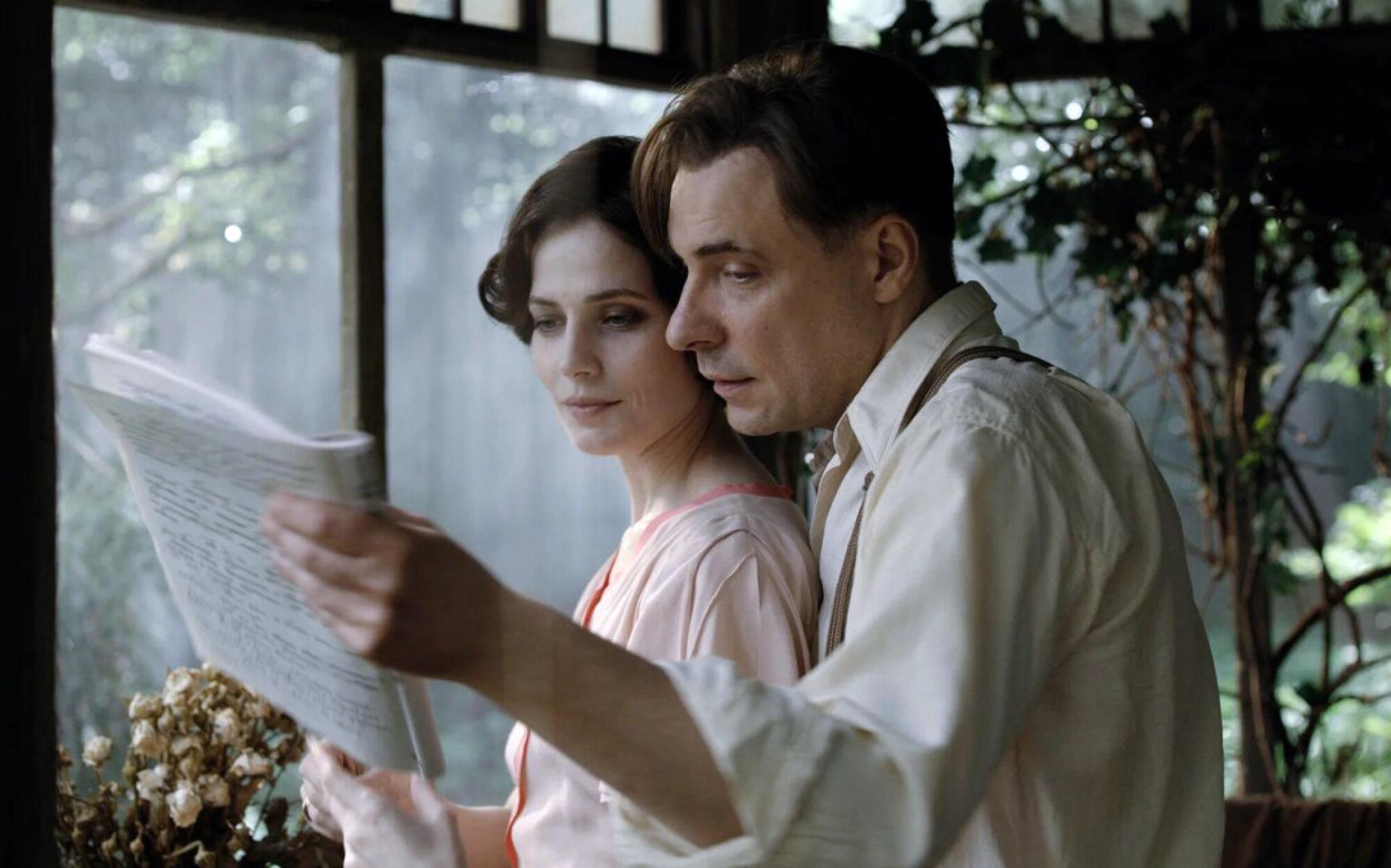
As Lockshin studied the novel and Bulgakov’s life, it reinforced his sense of the project’s anti-authoritarian message.
“Bulgakov has written this novel kind of about himself and his relation to a totalitarian state, but he had to do it in a veiled way,” Lockshin says. “It was a way to talk about that.”
In Lockshin’s film, government power is terrifying and arbitrary. The Master is denounced by critics, banned from the writers union and consigned to a psychiatric ward. The bereft Margarita becomes a witch with the power of flight and invisibility, which she uses to exact flamboyant vengeance on the writer’s tormentors, while Satan wreaks havoc with the aid of a succubus and a talking cat.
Lockshin created a Moscow that never existed, full of the “monumental megalomaniac architecture” that Stalin had envisioned but never completed. “It’s architecture that makes the individual feel insignificant, an ant in the system,” Lockshin says.
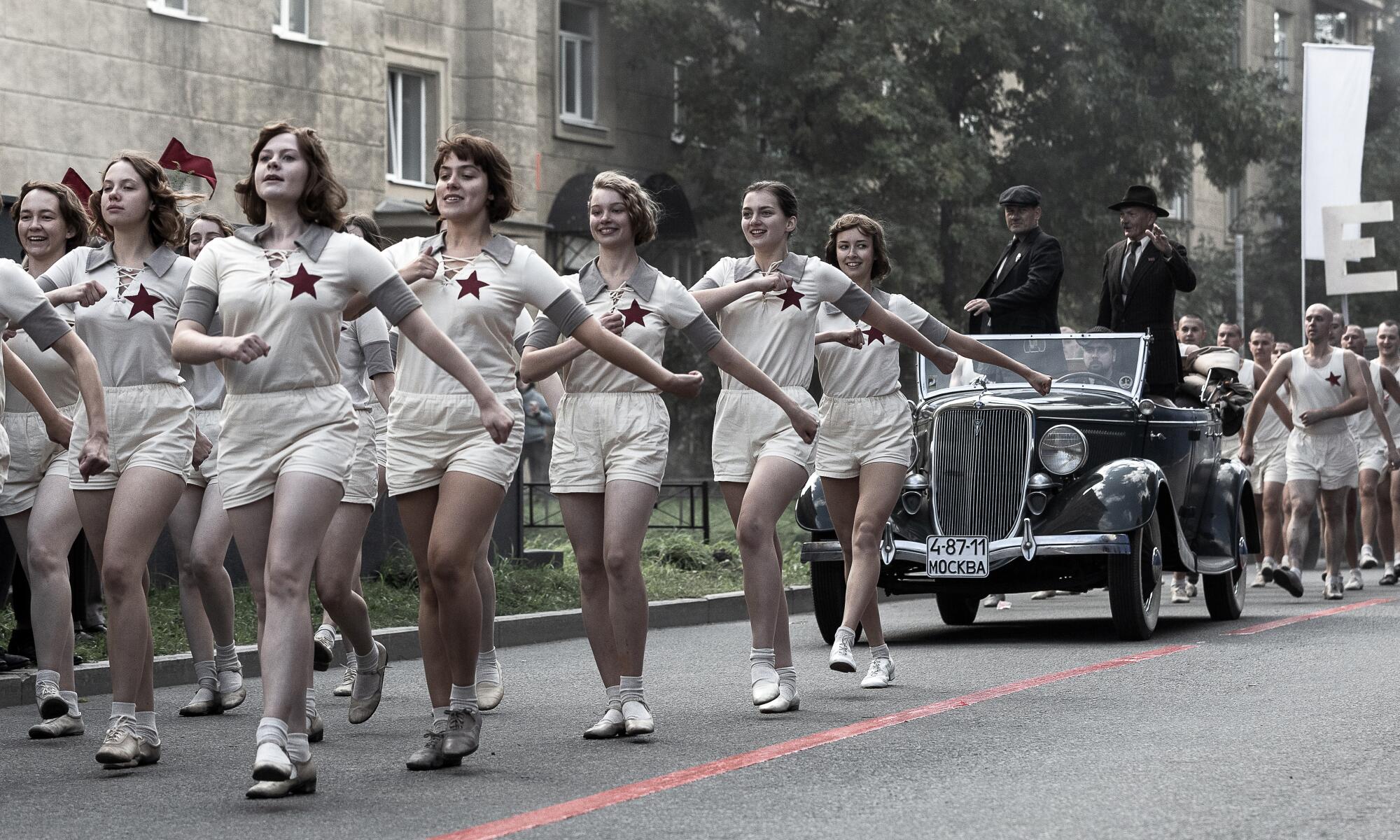
The film climaxes with Moscow’s incineration, the Master’s fantasy of revenge — a scene that is not in the novel but Lockshin believes is a fair extrapolation of Bulgakov’s intentions. Meanwhile, the Christlike prophet declares that “all power is violence against people.”
Lockshin settled in Los Angeles in late 2021, with the filming complete, and he was assembling a first cut in February 2022 when Russia invaded Ukraine. On social media, he posted coverage critical of the war. Russian lawmakers quickly passed a law: 15-year prison terms for pushing narratives counter to the government version.
His Russian producers, relying in part on government money, warned Lockshin to keep quiet. They suggested he cut scenes depicting the Master’s brutalization by the secret police.
“People said, ‘Take out a few scenes, what’s the big deal?’ I was getting a lot of that,” he says. “Just, ‘Let’s get it out there, it’s still powerful.’”
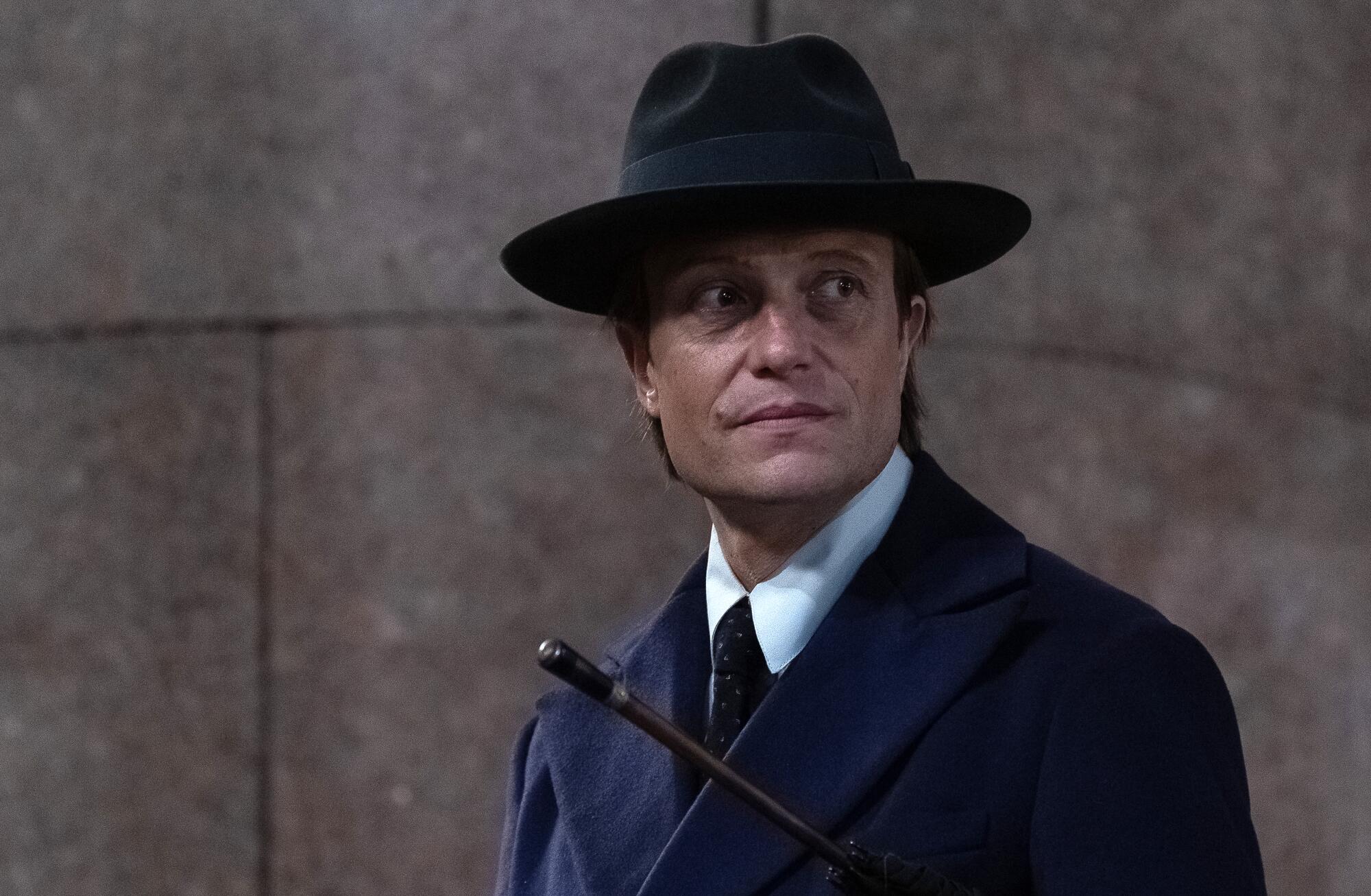
The movie, Lockshin had come to realize, was not about Stalin’s Russia but Putin’s Russia.
“It’s about an artist who stays free inside despite realizing it could lead to his demise,” he says. “I wasn’t willing to compromise anything that took out any of the political scenes. That’s the core of their drama. It’s definitely not just a political movie, but those parts play out in an emotional way.”
The movie was in limbo through 2022, and ultimately his producers backed him. It helped that some of the financing came from a source in the United Kingdom, unbeholden to Putin’s government.
As work continued, Anna Drubich, the music composer, based in Los Angeles, directed an 80-person Russian orchestra over Zoom. “Everyone who knew I was working on ‘The Master and Margarita’ said, ‘This is so important,’” she says. “I think this book appeals to Russian people on different levels. For some it’s a fantasy story about Satan. For some it’s a very deep political statement.”
The film, at 2½ hours, premiered in Russian theaters in late January. It is possible authorities allowed its release because it was much anticipated, and “they couldn’t imagine it was so timely,” Lockshin says.
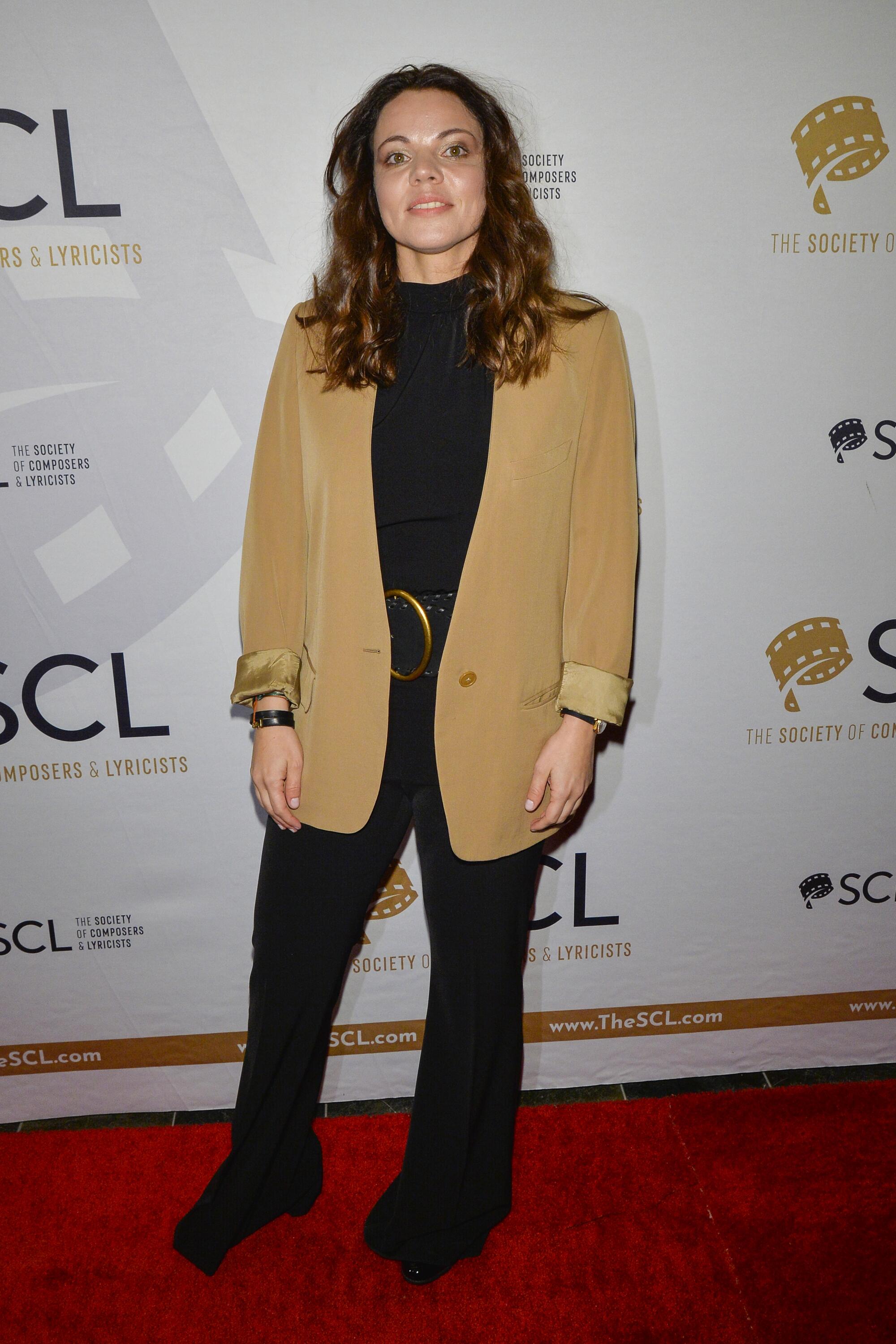
The first week, Lockshin says, 1.5 million people saw it. The film’s themes struck a responsive chord in a country where dissent had been criminalized and the fear of arbitrary arrest was pervasive.
A Russian-language website based in Latvia called it “the first worthy film adaptation of Bulgakov’s novel,” with “scaldingly relevant” parallels to Putin’s Russia. In Russia itself, where the independent media have all but disappeared, reviews were more oblique. But even the state newspaper, Izvestia, was laudatory.
Still, the backlash was swift. Putin’s propagandists found the American-born director’s antiwar posts and denounced him as a traitor to his adopted country. They called for the film’s banning and the director’s prosecution. Threats arrived. In Stalin’s time, guys like you would be shot.
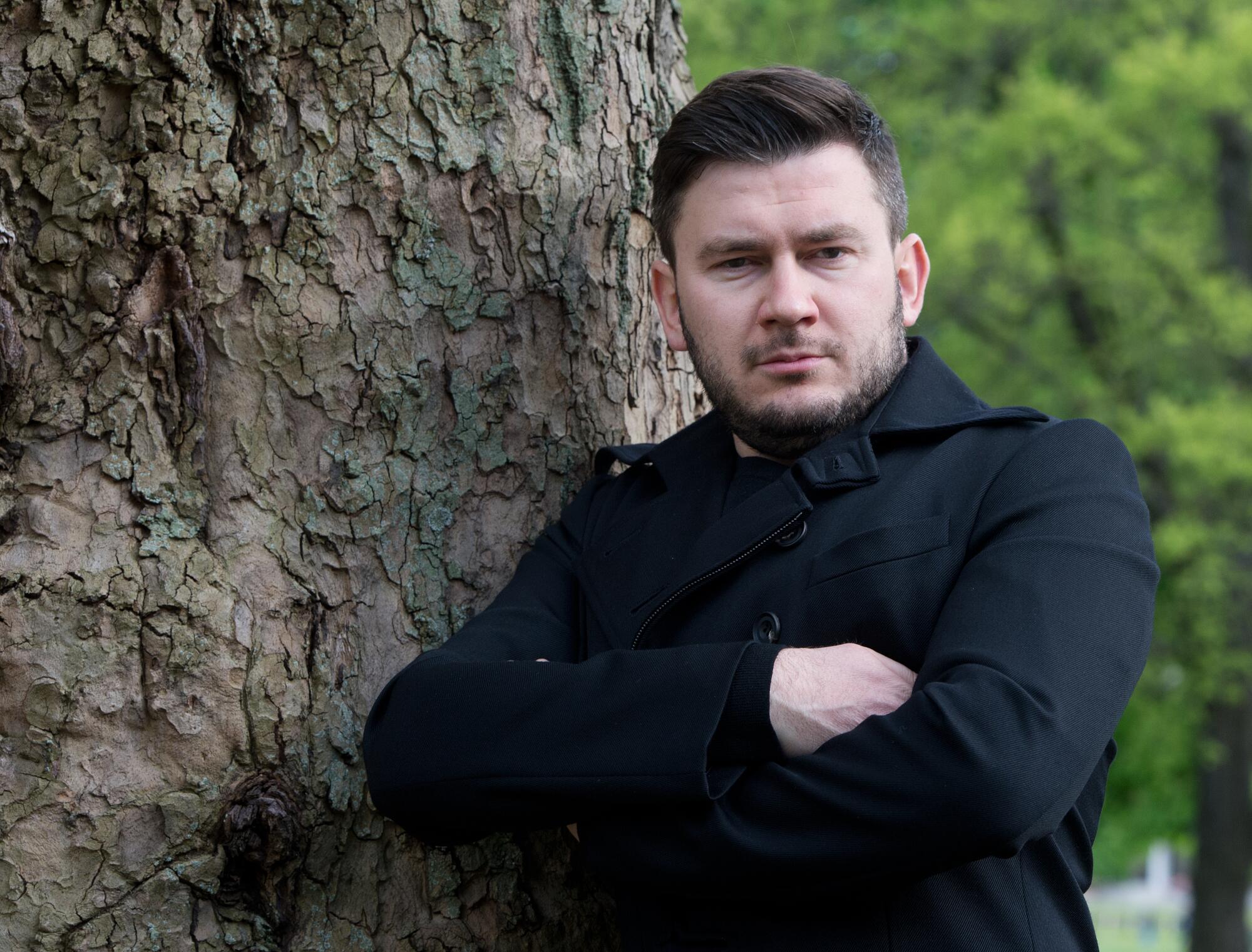
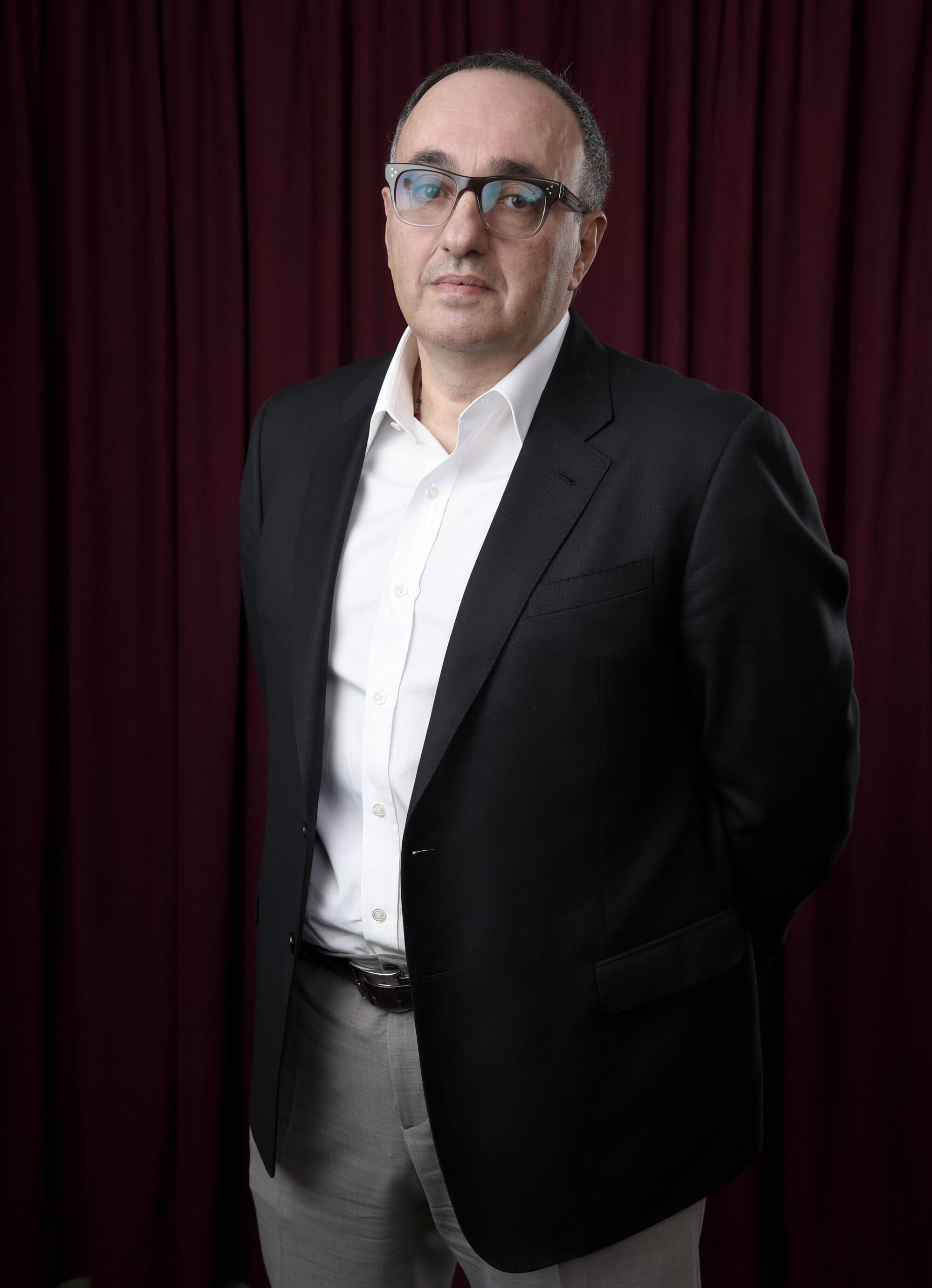
“I’m called a Russophobe and hater of Russian culture,” Lockshin says.
Lockshin found himself in the position of many creative artists who had fled Russia. He contacted Dmitry Glukhovsky, 44, a popular Russian novelist in exile who denounced the war in Ukraine and was sentenced in absentia to eight years in prison. He now lives in Europe. Glukhovsky told Lockshin he was probably safe in the United States, though a convenient target for criticism.
“He’s an easy target because he’s an American citizen. He’s independent-minded. They unleashed the dogs against him,” Glukhovsky says. “Seeing this movie is practically an act of civil resistance in a society where you can’t afford any civil resistance.… I would say it is a manifesto.”
Lockshin found another ally in Alexander Rodnyansky, a 62-year-old Ukranian-born producer who was forced to flee his longtime home in Moscow after speaking out against the war. He told Lockshin that there was no hope of appeasing Putin’s pro-war patriots, unless he was willing to beg forgiveness and publicly support the war with a visit to Russian troops. Lockshin said he would never do so.
“That means you are not going to go back to Russia,” Rodnyansky recalls replying. “The good news about this is, you are free.”
Rodnyansky fears the attacks on Lockshin are far from over. “He might easily be declared a foreign national or criminally prosecuted,” he says. “ You can’t imagine how easy it is now.”
Every day, life in Russia seems to serve up eerie echoes of the film. In December, cringing apologies were extracted from Russian celebrities who attended an “almost naked” bacchanal deemed unseemly during wartime. In the movie, the editor of a literary magazine is forced to grovel for publishing a suddenly disfavored play.
After opposition leader Alexei Navalny died in an Arctic prison in February, his mother charged that the Russian government was withholding his body until she agreed to a secret burial. In the movie, the Pilate character orders Roman soldiers to hide the body of the executed prophet.
“All these things that seemed to be from the past in the movie became the present,” Lockshin says.
His film now resides in another kind of limbo. To see it in the States is almost impossible; there have been only a few private and college screenings.
Lockshin hopes to find an international distributor, but “nothing has been easy since the war happened.” He expects he would be arrested if he returned to Russia, but “I don’t want to check.”
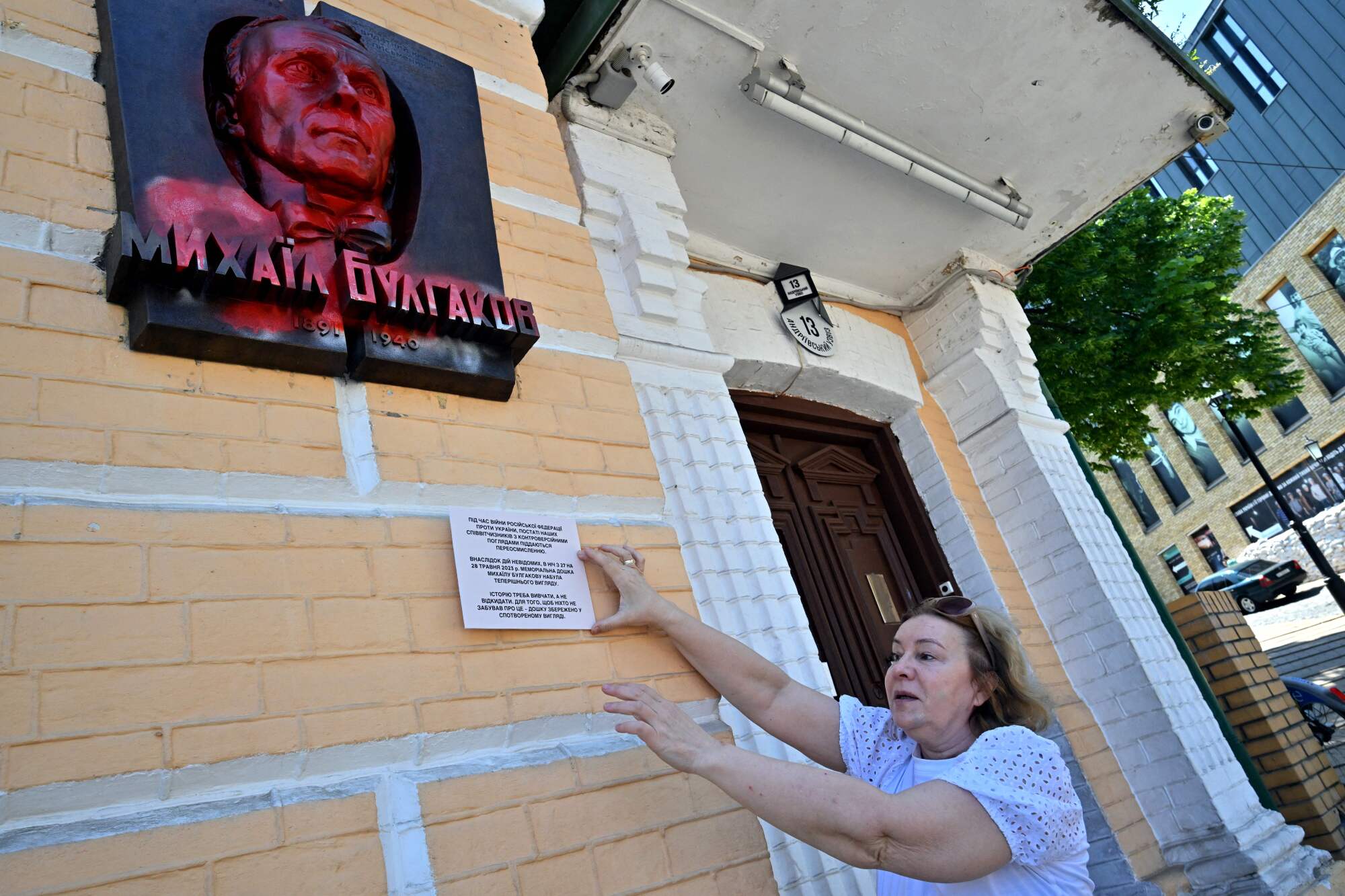
“The Master and Margarita” is still playing in Russia. In a country where people are forbidden from standing arm in arm at a street protest, they sit shoulder to shoulder in the dark.
He says the film has drawn 5.5 million people to date, making it the top-grossing film in its 18-plus ratings category in Russian history. People email him to say they’ve seen it two or three times.
“Being in a movie theater with like-minded people is important,” he says. “They feel that they’re not alone out there.”
More to Read
Sign up for Essential California
The most important California stories and recommendations in your inbox every morning.
You may occasionally receive promotional content from the Los Angeles Times.
